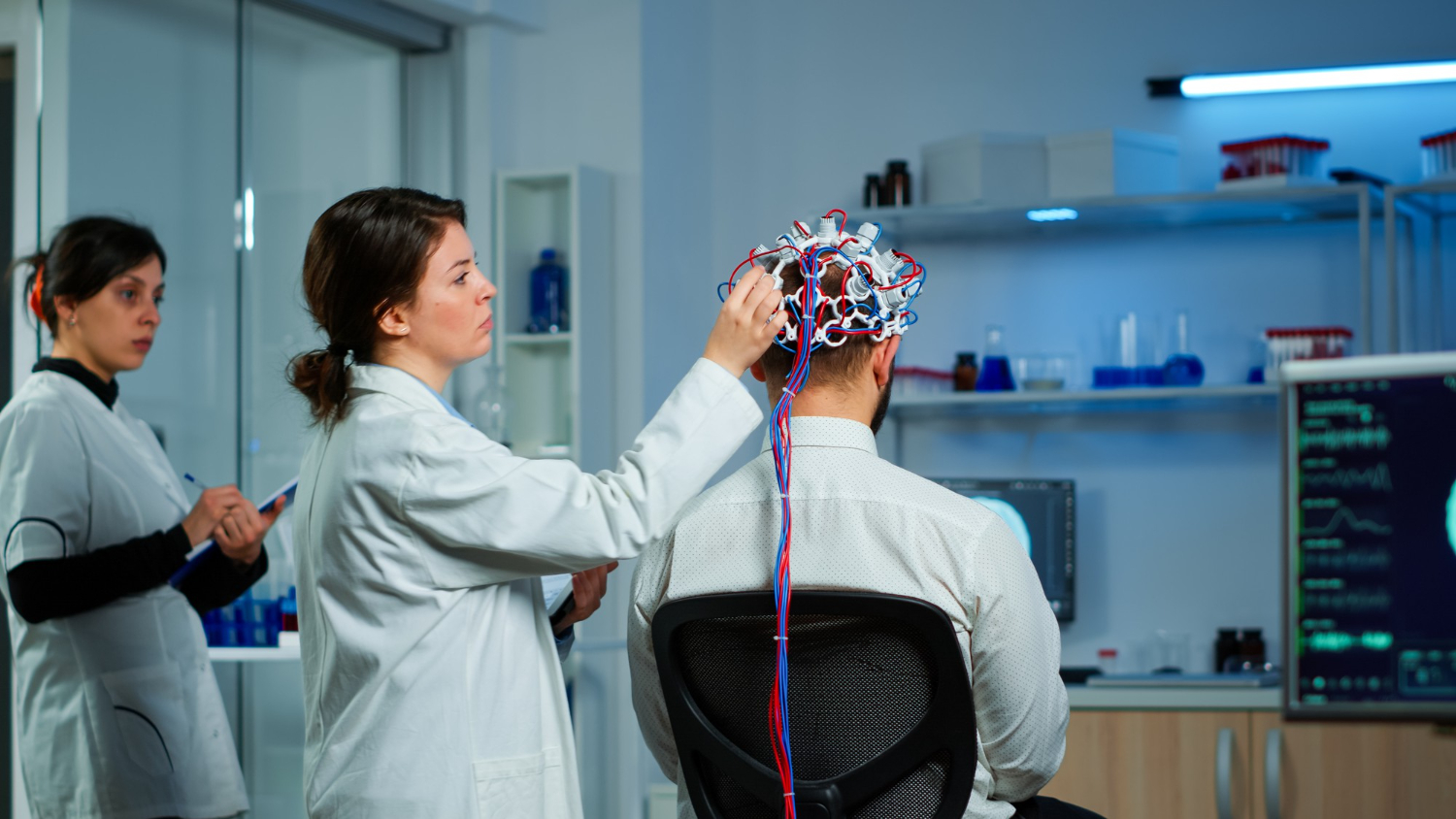An electroencephalogram (EEG) is a test that measures electrical activity in the brain using small, metal discs (electrodes) attached to the scalp. Brain cells communicate via electrical impulses and are active all the time, even during asleep. This activity shows up as wavy lines on an EEG recording.
An EEG is one of the main diagnostic tests for epilepsy. An EEG can also play a role in diagnosing other brain disorders.

Why it's done
An EEG can find changes in brain activity that might be useful in diagnosing brain disorders, especially epilepsy or another seizure disorder. An EEG might also be helpful for diagnosing or treating:
- Brain tumors
- Brain damage from head injury
- Brain dysfunction that can have a variety of causes (encephalopathy)
- Sleep disorders
- Inflammation of the brain (herpes encephalitis)
- Stroke
- Sleep disorders
- Creutzfeldt-Jakob disease